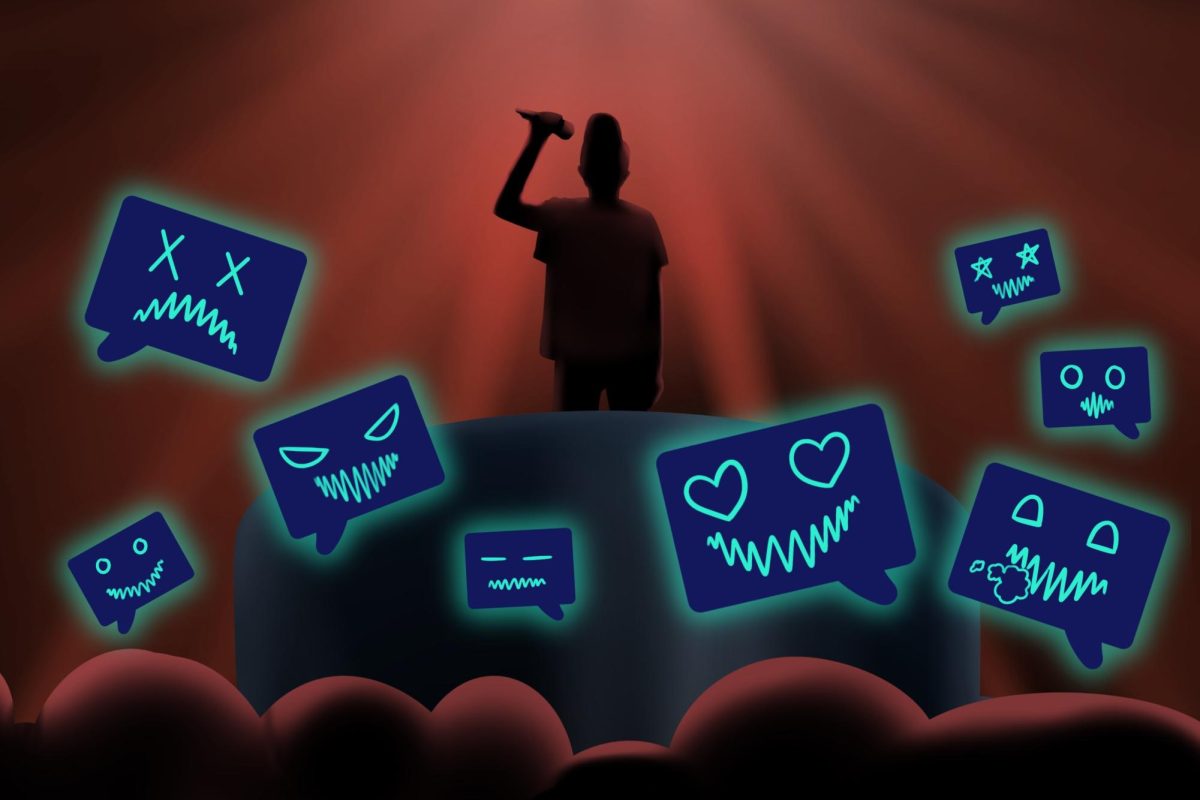When I was 6 years old, my mom introduced me to “Ready to Die” by The Notorious B.I.G. The aggression in Biggie’s tone and the uniqueness of his flow marked the first time I had been exposed to such a unique talent. I downloaded the album, listened to it constantly and made Biggie my entire personality. Fourteen years later, my love for the highly esteemed rapper had remained strong — until disturbing stories about his abusive character, especially toward his ex Lil’ Kim, shattered my perception.
In light of the recent exposure of Sean “Diddy” Combs’ crimes, fans of numerous artists have begun to not only look into their favorite musicians’ affiliations with the music mogul but also question the morality of the stars they have fallen in love with. In my case, after learning about Diddy’s association with Biggie in abusing rapper Lil’ Kim, I have torn my Biggie and Tupac poster down from my dorm wall with a heavy heart.
Of course, Biggie and Diddy are not the first celebrities of their fame bracket to be involved in such heinous crimes and abuse. Obsessive fandoms at the beck and call of their favorite artists like Taylor Swift and BTS render artists practically bulletproof to criticism and the consequences regular people face. Musicians such as Daniel Caesar, Tory Lanez and Jamie Foxx have been accused of racism, physical violence and sexual misconduct respectively, yet they have still maintained millions of monthly listeners on Spotify. Why? Because for many fans, their devotion overrides their morality.
Obsessive dedication to a celebrity, otherwise known as “stan culture,” has morphed into a toxic phenomenon. Some characteristics of stan culture include creating online accounts dedicated toward their favorite artists, constantly staying updated on the minutiae of celebrities’ lives and acting as an adamant defender of celebrities and their actions. Those who “stan” an artist often commit to never abandoning their unwavering love for them, which can become problematic if that artist engages in unacceptable behavior.
With a dangerously loyal fanbase, artists are free to continue their poor behavior, immune from criticism, financial loss or accountability. This in turn creates a culture where celebrities are treated as gods, permitted to behave recklessly with the safety net of their unwaveringly loyal fans. Stan culture also makes those who critique a celebrity subject to attacks from their aggressive fanbase and leads to a culture that prioritizes their idols over accountability.
Glorification of celebrities is both unhealthy and unrealistic in the long run. Many fans of canceled celebrities have argued that it is possible to separate the art from the artist and maintain a connection with the artist’s work. Even if you believe that this is possible, streaming their music still benefits celebrities financially and directly. Their careers are being held afloat by your streams, not by your personal approval.
Celebrities are not role models — they are talented people with a platform. Fans can go down a slippery slope, from attending concerts and buying paraphernalia, to stalking celebrities’ social media accounts and tabloids to find out the personal details of a star’s life. This infatuation can often lead to a concerning phenomenon referred to as parasocial interaction in which the individual has created a bond or emotional connection with a celebrity who doesn’t know they even exist.
This infatuation with and attachment to our favorite celebrities is often an attempt to fulfill an emptiness within ourselves, which is detrimental to our well-being. On top of that, when the celebrity you’ve invested so much emotional energy into turns out to be an awful person, the cognitive dissonance can be crushing. Investing in our own lives, relationships and hobbies instead of obsessing over that of a celebrity is a healthier way to go about your time. We can have strong connections to the creative output of artists, but we can do so without entering into the dangerous space of infatuation.
It is our moral responsibility as humans to contribute to a culture of accountability by not giving people free passes. The bad behavior celebrities engage in can vary from understandable human error to unacceptable misdeeds. It is up to you to determine whether or not your conscience can handle continually engaging with the artist’s media. Perhaps scale back on the intensity of your obsession with them and limit your interactions with them to a listening-only basis. It’s fine to appreciate someone’s art, but that doesn’t mean we need to worship the person behind it.
However, if you’re like me and can’t reconcile an artist’s actions with your values, feel free to abstain from their work. There is always another musician to admire, another actor to enjoy. Substituting a musician with questionable character for a morally sound replacement can be both rewarding and gratifying. By all means, listen to whoever you want, but just remember your favorite artist — nobody, for that matter — is infallible.
Contact Leila Olukoga [email protected].
























































































































































